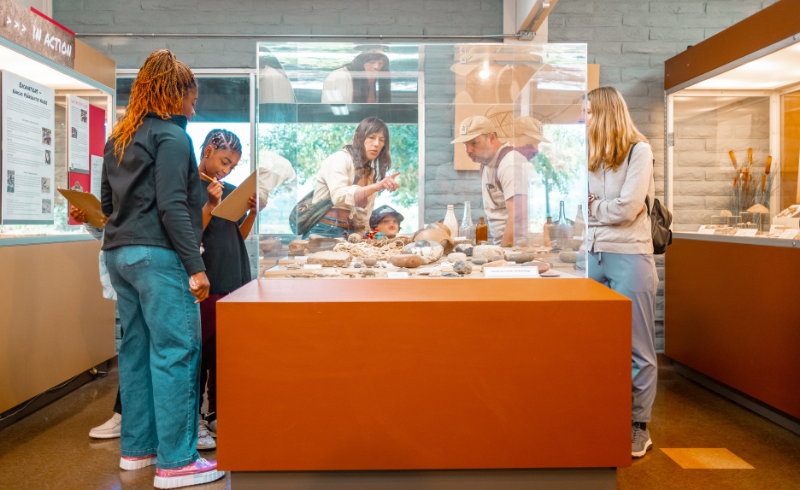Donate
 The Center preserves millions of cultural resources from San Diego County and promotes the importance of cultural resources through exhibitions and programming for all ages. Please help us continue to preserve local history by making a tax-deductible donation. When making your donation, you may indicate how you would like for your contribution to be used.
The Center preserves millions of cultural resources from San Diego County and promotes the importance of cultural resources through exhibitions and programming for all ages. Please help us continue to preserve local history by making a tax-deductible donation. When making your donation, you may indicate how you would like for your contribution to be used.
To make a donation by phone, call 760-291-0370 to speak with the Development Department.
To make a donation by mail, send checks made out to the San Diego Archaeological Center to the following address:
San Diego Archaeological Center
ATTN: Development Department
16666 San Pasqual Valley Road
Escondido, CA 92027
In-kind gifts are contributions of goods or services to the organization. If you would like to make this type of donation, contact the Development Department.
The San Diego Archaeological Center is a 501(c)(3) Charitable Organization
Federal Taxpayer Identification Number 33-0574573
Monthly Giving Program
With a recurring donation to the San Diego Archaeological Center, your valuable donation will help to fund many important projects throughout the year. By becoming a sustaining member, you help us to create a stable foundation. Your donation allows us to plan for the year ahead!
Making recurring donations is quick and easy. Just select Monthly under Donation Frequency on our online form. You may donate the amount that you are comfortable giving each month. No matter how big or small the sum, we consider every gift essential to sustaining the Center! For other payment methods, please contact the Development Department.
Endowment Fund
How will you be remembered? Create a lasting legacy through the San Diego Archaeological Center’s Endowment Fund. Estate Giving, Gifts of Real Estate, Pooled Income Fund, and Charitable Gift Annuities are all ways of that you can leave a legacy for the future while receiving tax deductions and other benefits for you and your family.
Please contact the Development Department for more information.